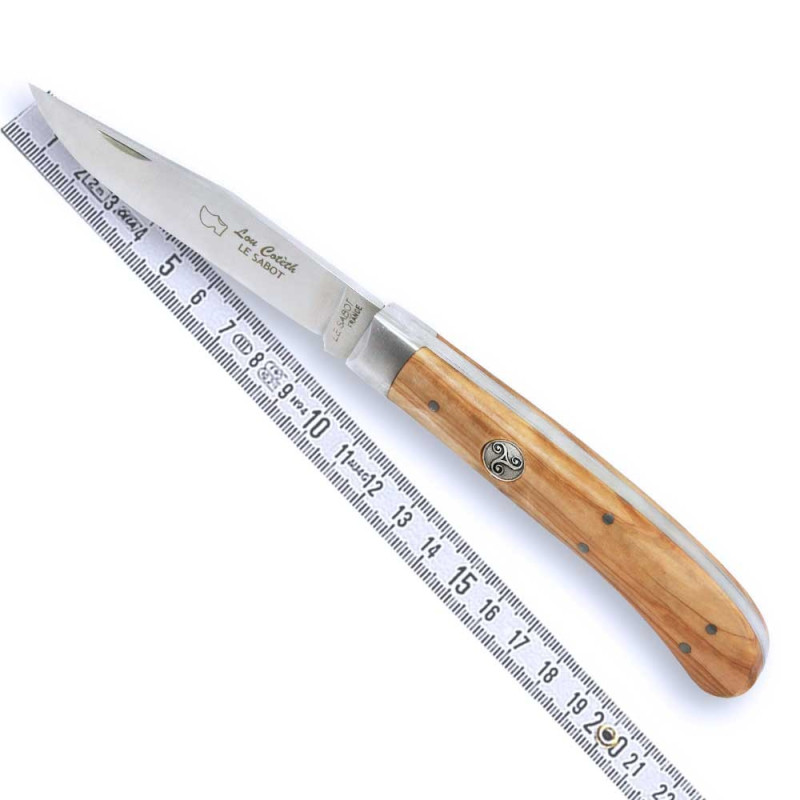







Product customization
Don't forget to save your customization to be able to add to cart
This knife and its components are guaranteed for 2 years.
We deliver all over the world.
We will provide you with a return label within 30 days if this product does not suit you.
This knife can be re-sharpened by us at any time during its service life.
This knife comes with a certificate of origin attesting to its provenance.
The Triskelion (or Triskele) is best known as a Celtic symbol and is considered to be a major characteristic of celtic art.
Dating back to ancient times (3200 BCE) and adopted amongst neo-druids in the 19th Century, the Triskele can be found throughout all of western Europe, from Ireland to Brittany, Galicia and the Asturias.
It is the symbol of the Basque Country as well as being used officially in Ireland and by Bretons.
It also figures on the flag of the Isle de Mann.
Its ternary gyrating motif is made up of 3 spirals all turning in the same direction. In order to be beneficial, the triskele's branches are meant to turn from left to right.
With your Actiforge Triskele Knife you carry with you a Celtic good-luck symbol.
The Triskelion is obtained by cold forging. A concave die is engraved and used to hammer the triskele into the cold metal. The triskele is then de-burred, polished and inserted into the knife handle.
What does the triskele (or triskelion) represent?
Triskeles can represent the three dynamic elements of water, air and fire, of which the Earth is the centre.
The 3 re-united branches represent the unity of a trinity or triad. For Celts these could be Lugh, Daghda and Ogme, or the one goddess in her three aspects of daughter, mother ans wife.
What are its origins?
It has been found large quantities of coins and jewellery dating back to 450 to 200 BC but in reality the triple spiral appeared long before that time. People from the neolithic used it, adorning their megaliths with it. The oldest evidence found is engraved in stone on the New-Grange site, in Ireland.
Long forgotten, the triskelion reappeared at the end of the 6th Century in the Merovingian era before falling back into oblivion throughout the Middle Ages. Ireland marks the exception, where it decorates numerous illuminated manuscripts. In the 1920s, it is rediscovered in Brittany.
And finally, you can find our knife adorned with a triskele in the pockets of Bretons and of those attached to Celtic traditions.

You might also like

check_circle
check_circle